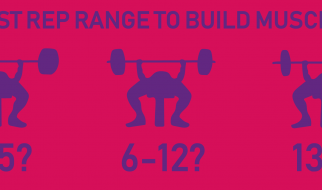The Nuance
The science behind the vitamin?s relationship to weight is shaky
 Credit: bong hyunjung/Getty Images
Credit: bong hyunjung/Getty Images
Every week, the Nuance will go beyond the basics, offering a deep and researched look at the latest science and expert insights on a buzzed-about health topic.
 Vitamin D is an essential nutrient, which means your body needs it but can?t make it without help. Traditionally the vitamin?s perceived importance was relegated to bone health. Inadequate vitamin D levels can lead to rickets in children and osteoporosis in adults.
Vitamin D is an essential nutrient, which means your body needs it but can?t make it without help. Traditionally the vitamin?s perceived importance was relegated to bone health. Inadequate vitamin D levels can lead to rickets in children and osteoporosis in adults.
But the past decade has witnessed a surge in vitamin D research, and much of it suggests that vitamin D is more multifunctional and crucial than previously believed. A 2014 review in the journal Frontiers in Physiology assembled evidence that low vitamin D status is associated with a range of inflammatory diseases?from arthritis and asthma to inflammatory bowel disease and lupus.
Research has also suggested that the vitamin may have a relationship to weight. ?We know that individuals classified as overweight or obese tend to have lower blood levels of vitamin D, and this is true even after adjusting for sun exposure and intake of vitamin D supplements,? says Dr. Anne McTiernan, a research professor at the University of Washington School of Public Health.
McTiernan has studied the effect of vitamin D supplementation?2,000 IU/day of vitamin D3?on hormone activity and body weight changes in postmenopausal women who were also partaking in a weight-loss program. ?Women whose blood levels of vitamin D rose to what is considered a normal level did lose more weight,? she says. Specifically, they dropped an average of 19 pounds, while women who did not achieve ?normal? vitamin D status lost an average of 13 pounds.
?This suggests that women who want to lose weight could ask their doctor to check their vitamin D levels,? she says. ?If the levels are too low, then the doctor will most likely advise the patient to take vitamin D.?
?Lower vitamin D seems to be a consequence of weight gain and obesity and not a cause of weight gain and obesity?
McTiernan says it?s possible that vitamin D somehow blocks the production of fat cells. Unfortunately, most of the existing research suggests the reverse relationship is more likely; a drop in fat leads to an uptick in circulating vitamin D levels.
?Vitamin D gets sponged up by adipose tissue and so is less likely to be in the blood if people are overweight or obese,? says Dr. Mark Moyad, director of preventive and alternative medicine at the University of Michigan. Moyad says that the elevated inflammation caused by obesity also drives down the blood?s vitamin D levels.
These associations have persuaded many people into thinking vitamin D can aid weight loss, he says. ?But lower vitamin D seems to be a consequence of weight gain and obesity and not a cause of weight gain and obesity,? he explains.
Other experts echo his take. ?There is no evidence for vitamin D on weight loss,? says Dr. Zhaoping Li, a professor of medicine and director of clinical nutrition at UCLA Medical Center.
Moyad says the same directionality seems to exist when it comes to vitamin D and other diseases. Behaviors that threaten your heart?like smoking or a sedentary lifestyle?can lower your blood?s levels of vitamin D. But taking D supplements won?t counteract the negative effects of these behaviors, he explains.
He points to a study published last year?one of the largest and most comprehensive vitamin D studies to date?that found giving people a vitamin D3 supplement did not lower their risk for heart disease, cancer, or risk of death. And more research has shown the links between vitamin D supplementation and inflammatory diseases like IBD are likewise ?unclear.?
There also may be a link between low vitamin D and fatigue. In a 2014 study, researchers at the Cooper Medical School of Rowan University reported that people with low levels of vitamin D also had symptoms of fatigue and that normalizing their vitamin D levels significantly improved the severity of their fatigue symptoms. However, whether an increase in energy levels could translate to more exercise is unknown.
There?s no question that vitamin D is important to your health. And many Americans?maybe even a majority of them?have insufficient levels. But most of the evidence to date suggests low vitamin D is a consequence of being overweight or unwell?not the cause. And taking vitamin D supplements doesn?t seem to make these problems go away.


